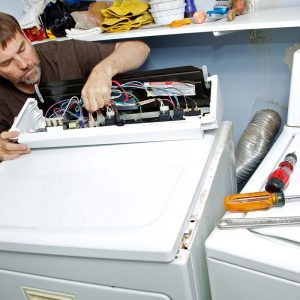Last Updated on July 5, 2025

Your refrigerator is one of the hardest-working appliances in your home, running 24/7 to keep your food fresh and safe. However, like any machine, it requires regular maintenance and inspections to function at its best. Neglecting your fridge can lead to higher energy bills, spoiled food, and costly repairs. Here’s why regular fridge inspections are essential and how they benefit your home.
1. Preventing Unexpected Breakdowns
A refrigerator that isn’t properly maintained is more likely to break down unexpectedly, leaving you with spoiled food and costly repairs. Regular inspections help you identify potential issues early, such as:
- Worn-out gaskets that allow cold air to escape.
- Dusty condenser coils reducing cooling efficiency.
- Malfunctioning thermostats affecting temperature control.
Tip: Clean the condenser coils every six months to maintain cooling performance.
2. Reducing Energy Consumption
A poorly maintained fridge consumes more energy, driving up your electricity bills. Common culprits include:
- Dirty coils that force the compressor to work harder.
- Leaky door seals allowing cold air to escape.
- Improper temperature settings straining the appliance.
According to the U.S. Department of Energy, keeping your refrigerator in good condition can save up to 15% on energy costs annually.
3. Extending the Lifespan of Your Fridge
Regular inspections and maintenance can significantly extend your refrigerator’s lifespan, saving you money on premature replacements. Here’s how:
- Ensure door seals are tight to prevent compressor overwork.
- Keep the appliance level to avoid uneven wear on components.
- Monitor and address unusual noises promptly.
Investing a little time in maintenance now can prevent expensive repairs later.
4. Ensuring Food Safety
A malfunctioning fridge can compromise food safety by failing to maintain the proper temperature. This can lead to food spoilage and even health risks. Regular inspections help ensure:
- The internal temperature stays below 40°F (4°C).
- There are no leaks or odors inside the fridge.
- The defrost system is working correctly to prevent frost buildup.
Maintaining a consistent temperature is critical for preserving the freshness of your food.
5. Detecting Early Signs of Problems
Inspections allow you to spot small issues before they become major problems. Look for warning signs like:
- Unusual noises, such as buzzing or clicking.
- Excessive frost buildup in the freezer.
- Water pooling at the base of the fridge.
If you notice any of these signs, explore the topic to find professional solutions for your refrigerator.
How to Perform a Basic Fridge Inspection
While professional inspections are ideal, you can perform a basic checkup at home:
- Check the door seals: Close the door on a piece of paper. If you can easily pull it out, the seals need replacing.
- Clean the condenser coils: Use a vacuum or brush to remove dust and debris.
- Set the correct temperature: Keep the fridge at 37°F (3°C) and the freezer at 0°F (-18°C).
- Inspect the drip pan: Remove and clean it to prevent odors and mold growth.
Performing these steps every few months can help keep your fridge in excellent condition.
When to Call a Professional
While regular maintenance can prevent many issues, some problems require expert attention. Contact a professional if:
- The fridge isn’t cooling properly despite setting adjustments.
- There’s a persistent noise coming from the compressor or fan.
- You notice leaks or puddles under the appliance.
Professional repairs can resolve these issues quickly and effectively.
Final Thoughts
Regular fridge inspections are a simple yet effective way to prevent breakdowns, reduce energy consumption, and ensure food safety. By staying proactive, you can extend the life of your refrigerator and save money on repairs. Start your maintenance routine today and enjoy the benefits of a well-functioning appliance for years to come.






